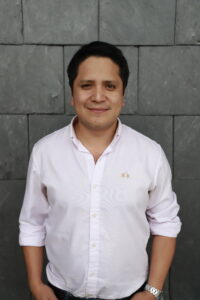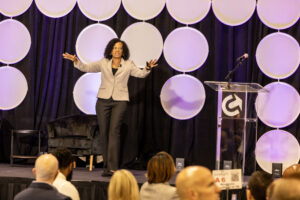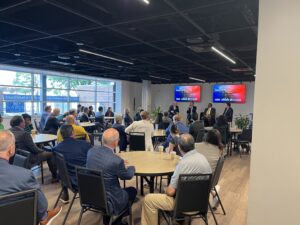Lizzie Williams
The food and beverage industry generated 39 million tons of food waste in 2015, a statistic that is only increasing.
Motivated by the amount of waste caused by the food and beverage industries, as well as refugee crises around the world, local beverage connoisseur Michael Rice, co-owner and operator at The Mad Priest Coffee & Cocktails, set out to build a cleaner business model.
Michael and his wife Cherita taught English and helped run a school in India when they met a local entrepreneur who asked Michael to work for him helping grow his franchise of cafes in different parts of India.
“Coffee was always the goal,” Michael says. “We were consulting for a local who was opening craft coffee shops. After about a year, we decided to branch off and start our own coffee company.”
When it became obvious that working the craft coffee industry in India wasn’t sustainable for the long-term, the Rices adjusted, packing up their lives and home coffee roaster to return home to the U.S. They settled in Chattanooga. Michael’s desire to remain in the coffee industry led him to work at The Camp House as manager, where he built connections in the Chattanooga community before launching Mad Priest.
In India, Michael and Cherita not only dabbled in the craft coffee industry, they witnessed India’s growing refugee crisis. Taking a cue from The Mad Priest character in the “Count of Monte Cristo,” the Rice family pledged to be more than just a coffee shop.
Working in the coffee industry gave Michael unique perspective on the coffee market and refined his vision for what Mad Priest would become.
“I felt there were not a lot of good, accessible options for coffee beans in the Southeast in terms of wholesale roasters,” Michael says. “The roast levels sway from either burned old wave coffee to bright acidic new wave coffee. There wasn’t an option that was in-between.”
Roasting experience from India coupled with Michael’s desire to roast a midrange blend made going into the business of wholesale the smartest option.
“My intentions were to be wholesale only. I had no desire to open a storefront, but wholesale is a diluted game. A storefront location creates a guaranteed customer,” he says.
After opening their first storefront on Broad Street, Michael and Cherita quickly saw its value. Brick and mortar provided the opportunity to showcase their brand and for customers to try their brews. The Mad Priest continued to grow, the way dreams and goals tend to, leading Michael to look for ways to expand his business model. He realized that he could combine his love for coffee and spirits.
“I love beverage,” Michael says. “I love craft coffee and craft beer.”
Michael blended both passions in a new storefront location on Cherry Street, serving craft coffee, craft cocktails and an array of culturally diverse small plates.
“I think spirits are interchangeable with coffee. They start off as a crop ― grown, produced, then roasted or distilled. At the end they are prepared by a barista or bartender. The trajectory is the same, they take the same amount of hands to produce,” Michael says.
Another thing coffee and spirits have in common, besides bringing people together, is mistreated laborers. Crops for both coffee and spirits are often grown and harvested by people who are underpaid and displaced by conflict in their home countries.
“I started working with some refugees in India. As I heard their stories of hopelessness and limited opportunities the story of Edmund and the Count resonated with me more and more,” Michael says.
It wasn’t enough for Michael and Cherita to serve great coffee after hearing the stories of refugees and gaining awareness of the waste crisis. Through those experiences in India, their mission was born: craft excellent coffee, educate the curious and champion the displaced.
The mission of The Mad Priest steeps into every aspect of the business through hiring refugees and serving ethically sourced coffee and cocktails.
“I wanted to correlate business with empowering people,” Michael says. “Refugees are just one part of that. Intentionally taking care of the environment and being socially responsible are the other parts.”






